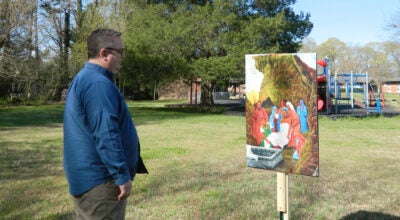Mark Conforti: Loving to Hate
Published 12:00 am Saturday, March 21, 2015
ESPN, the leading cable television source for all things sports, airs an outstanding series of documentaries. These “30 for 30” films take a close look at the people, social events, power struggles, and drama related to fascinating moments in sports. Earlier this week, ESPN debuted Rory Karpf’s film, “I Hate Christian Laettner.”
You might ask, “Who is Christian Laettner?” and “Why do people hate him?”
The first question is easy to answer; the second, not so much.
Laettner was a star player for the Duke men’s basketball team from 1988 to 1992, which included four Final Four appearances and two national championships. Laettner played for the 1992 Olympic “Dream Team” before a mildly successful pro career. But he is best known for his success during college, as well as being a lightning rod for controversy.
The film “I Hate Christian Laettner” explores why such a strong sentiment has stuck for so long. Five reasons are suggested, and all five pertain to perceptions about Laettner. Some perceptions, such as “bully,” can be backed up by numerous examples. Other perceptions, such as “privilege,” can be easily dismantled by counter evidence.
Please know that I am not seeking to defend Christian Laettner. He doesn’t need me for that! In full disclosure, I have cheered for the Blue Devils since the late 1980s when I attended Tommy Amaker’s basketball camps in Durham.
Also in full disclosure, or perhaps as a confession, I have pledged unswerving hatred against other athletes and teams. One particular college football team drives me nuts, because this rival school secures the sterling recruits, gets away with shenanigans, and (worst of all) wins. How easy it is to feel justified in my “hatred.”
Why do we spew forth such illicit emotions about athletes we do not personally know?
Expressing an emotion, no matter how sublime or volatile, actually says more about the speaker than the subject. So if I say, “I love X” or “I hate Y,” I am actually saying something significant about me and very little about X or Y. It’s an opinion. Voicing an emotionally-charged opinion, however entitled we may feel, may unfairly cause another person’s perception to shift.
Try this: before you begin a sentence with “I hate,” dig deeper into why you feel this way. Perhaps one of the seven deadly sins lies at the heart of such vitriol. For example, like me and that college football team, you may feel envy. Maybe greed gets in the way of appreciating another’s success. What if wrath overwhelms you during defeat?
The season of Lent prepares Christian disciples for Easter. It’s a time of self-examination and repentance. Saying “I hate” can be a surprisingly needed prompt to look inward and confess. Otherwise, March could cause madness!
The Rev. Dr. Mark Conforti is the senior pastor at First United Methodist Church of Salisbury. You can reach him at mark@fumcsalisbury.org



